Newroz Telecom: Building the Infrastructure for Iraqi Kurdistan’s Internet
Imagine it is 2005 and the Internet penetration rate of Kurdistan (KRG) is near to zero, the only telecom was the government monopoly entity with aging exchanges and no fiber optics.
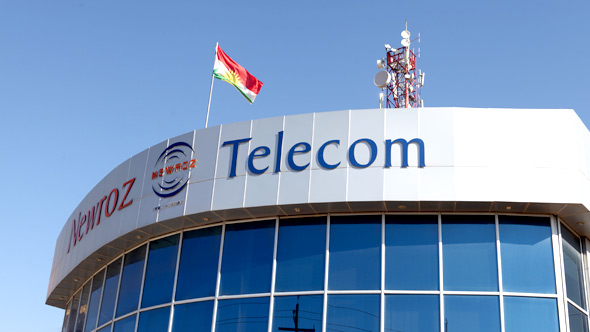
Written by T.K. Maloy
IRBIL: Imagine it is 2005 and the Internet penetration rate of Kurdistan (KRG) is near to zero, the only telecom was the government monopoly entity with aging exchanges and no fiber optics.
Like other aging telecom systems, this gave the country the opportunity to take a large leap forward in integrating an entire new network of both voice and Net.
Newroz Telecom entered into this opportunity with an initial pitch that was to prove successful for both government and the company.
Allowing them to undertake the rebuilding of Kurdistan’s telecom under favorable contract terms was the 2006 investment law of Kurdistan, which Junad describes as “very attractive.”
Kawa A. Junad, CEO Newroz Telecom, described the initial relationship.
“The company was established in 2005. At that time, we spoke to the Prime Minister about building the telecom infrastructure in Kurdistan. It was difficult at that time because the government had a monopoly in every sector including telecom. So we approached them with the idea of partnering with the Ministry of Telecom and using their infrastructure.”
Junad adds: “They did not have fiber optic and all the exchanges were very old. So we would be partners – us having about 70 percent and them having 30 percent with some other investors with a minority share. We agreed to a 20 year contract with the Kurdistan Regional Government (KRG) and the Ministry of Telecom in particular.”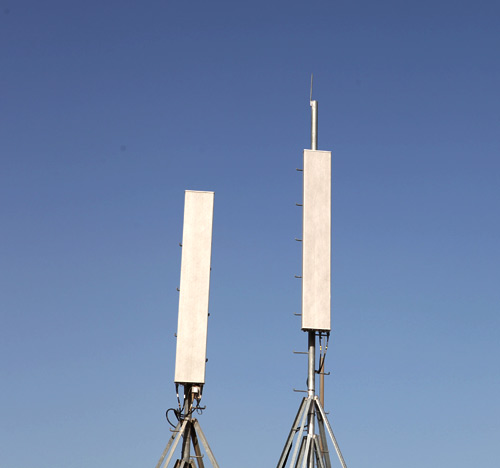
Allowing them to undertake the rebuilding of Kurdistan’s telecom under favorable contract terms was the 2006 investment law of Kurdistan, which Junad describes as “very attractive.”
“….We started to build things that Kurdistan didn’t have. At the time, the penetration rate of the internet was almost zero so we tried to concentrate on the Internet sector instead of voice ….it was very expensive and there was no guarantee on the return on investment but we tried because we always believe in the future. We laid about 3,000 km of fiber, not only covering and connecting the main cities, but also small cities and villages. “
Newroz began placing fiber in 2006 and by the end of 2007 was finished. Though concentrating on the Net infrastructure the company also replaced all the old exchanges which were imported from Iran and elsewhere.
“They weren’t very good and we couldn’t offer our subscribers very good quality or service, so we had to change them. So for the first time in the region, in 2007, we brought fiber to the curb. It wasn’t to the home at that time but to the curb. So we changed the existing copper network and replaced it with fiber.” Junad said.
The other big challenge at the same time was connecting Kurdistan’s modernizing networking with the outside world “For fiber, you have to be connected to the internet around the world and the only place for us to connect to was Turkey. In 2007 and 2008, they had some political tensions with Kurds. We tried our best with the help of our partners and we managed to make it work,” Junad noted. 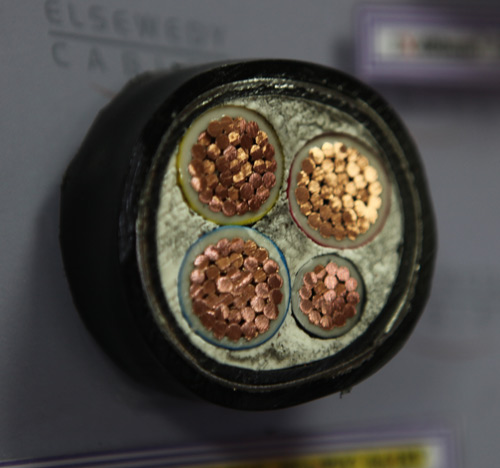
There was problems and interference from the Federal Republic of Iraq,
“We were the first company (to connect Iraq worldwide) even before the Iraqi government – they were a monopoly, so they tried to prevent that connection, ”Junad said “ They even tried to stop it politically by speaking to the Turkish government but the Turkish really supported their company, Turk Telecom, and we were able to make a deal with Turk Telecom to complete the connection.”
This was a turning point in the history of Iraqi telecom because it defacto changed a system that heretofore had been run by monopoly, including in Kurdistan. “
He went on to note that because Iraq still maintains a monopoly control over the telecom business, the cost to business and subscribers is prohibitively high and the Internet penetration is very low.
If you see internationally that the Internet penetration of Iraq is 8 percent, it’s only because of Kurdistan. We just reached 10 percent and our goal is to reach 35 percent and probably 50 percent by the end of 2015
“Based on that connection, there was a huge discount on the bandwidth given to companies and subscribers at that time. 1 Mb previously cost more than US $1,400 and now it only cost US $20,” Junad explained. “Without that interconnection, it would not have been possible, Junad said.
“If you’re in Iraq, 1 Mb is still US $1,200 – this is the most expensive rate in the world, more expensive than Cuba, and perhaps very few people know that. It is because in Iraq they still have a monopoly and they don’t allow any private sector company to make deals with neighboring countries, including connecting to Kurdistan.”
Because of this the Newroz CEO said that the Net penetration rate of the remainder of Iraq is only 2 percent. “If you see internationally that the Internet penetration of Iraq is 8 percent, it’s only because of Kurdistan. We just reached 10 percent and our goal is to reach 35 percent and probably 50 percent by the end of 2015.”
With demand for Net service increasing markedly, the company though about adding 3G service, but Junad said, “after a very long study, we decided it was not worthwhile to pursue 3G as long as 4G was coming. So we scrapped the idea of 3G and went for 4G.”
Looking at how a private entity such as Newroz has operated in an environment where politics can impede private initiatives – particularly in the rest of Iraq, Junad noted: “In Iraq it is not the same and things are going backwards. Even if they have some private sector businesses, they look at it as a threat to the government and they try to monopolize everything again.”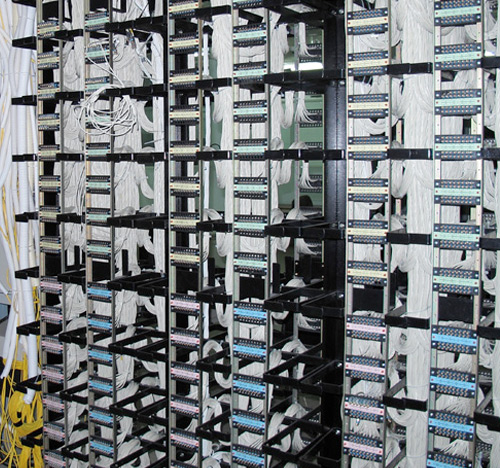
However, he said: “The difference is that Kurdistan is moving towards privatization and Iraq is moving towards bringing everything under the control of the government. I don’t believe that in Iraq there will be big companies coming in to make investments under their current policies but it is very open in Kurdistan. In 2005 it was difficult and it became easier from 2007 to 2009. “
Adding that he believes that Kurdistan’s telecom and Internet is no very far that of Turkey, Junad said. “The mentality has changed and the government (KRG) has changed, especially in the way they view the private sector. Now they view the private sector as a partner and I think they are trying to introduce a new law in the minister’s cabinet called the PPP, Private Public Partnership, which is a very good thing.”
The Newroz strategy is one the Junad believes will benefit Kurdistan and the whole of Iraq, but there have been problems. “The strategy was first of all to make Iraq the bridge between the Far East and Europe and America because everybody knows all these (submarine) cables go through the Suez Canal in Egypt. There are big concerns amongst companies throughout the world and they want to find an alternative road.”
The alternative road, he said, is what Newroz has been working on the past three years in Iraq.
“We thought Iraq was the ideal place to compete with the Suez Canal. (and companies are looking for a faster route and are willing to pay extra for the speed.)We tried to do this and we had much help from the Minister of Telecom in Iraq, Mr. Muhammed Tofiq Allawi. He was a great person and we tried to explain all of the benefits to him. He believed in the idea and gave us a license to do this.” Junad said.
According to Rudaw, a local economic newspaper, “The cable deal would provide around US$ 120 million revenue to Iraq and this will be the second largest revenue, following oil”
“We did this as an investment and gave a very good share of the total revenue to the Iraqi government. They agreed to it at that time and we went through all the legal channels after more than a year of discussion and negotiation. They signed it and we completed 80 percent of this project but unfortunately, the Prime Minister stopped the project.” Viewing the under construction network as a security threat, the PM stopped the project and the matter is currently held up in Iraq courts.
“We feel we have been treated very badly by the Iraqi government. We have been accused of some things that are completely untrue. They have not been willing to talk to us directly. We have been trying for the last six months to see the Prime Minister or even send him a letter.
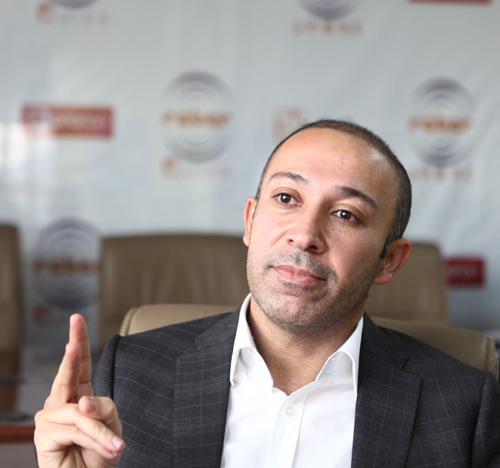
But he is not allowing a company to come here to invest under the investment law of Iraq; already we have invested more than US $137 million and finished 80 percent of the project. Now our project is sitting there and everything can be damaged within the next six months and we will have nothing.”
For Newroz the concept of having a global data exchange hub in Baghdad would add to the recognition of Iraq’s capital on par with Frankfurt, London, Marseilles and New York.
Ekurd.net, a Kurdish Internet daily, later reported that “The contract signed by the Ministry of Communications with Newroztel was cancelled by Premier Nouri al Maliki without much explanation despite his telecom minister resignation. But Huawei quickly signed a fiber optic contract with the new minister H.E. Torhan Mudher Hassan Al-Mufti.”
Stalled or not in Iraq, Newroz has other projects still ongoing. “…We are concentrating ourselves on Kurdistan. I believe 4G will change a lot in Kurdistan. We are trying to deploy 4G (LTE) in all of Kurdistan, not only in the main cities,” Junad said. “
It is Newroz’s objective that in the near future Kurdistan will have a superior telecoms infrastructure compared to the UAE, Kuwait and Saudi Arabia.
“No one would have believed that possible five years ago but it is the reality now. In 2013, we will have the best service in the region. This 4G service has so many benefits. Before, for a big capacity with broadband Internet you always needed a wire which we already have,” Junad said. “But now we want wireless broadband – you can download movies and media companies can benefit from it by broadcasting without any other expensive tools. With one SIM card on the camera, they can broadcast live wherever they are and have the coverage.”
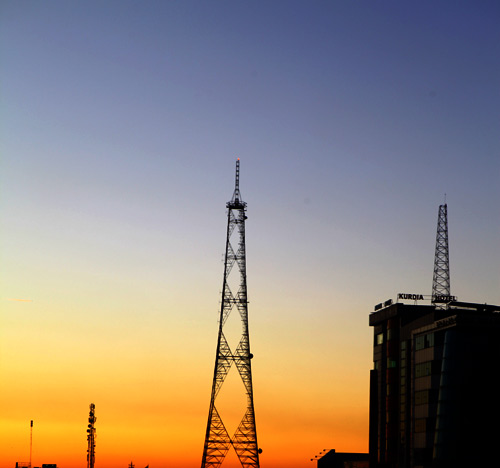
The company expects to release the first 4G in the region on March 21, 2013.
“What Newroz is trying to do is different. It is not only the name of 4G but the service we are trying to provide has never been provided in this whole region, not even in Turkey, the Gulf, or neighboring countries. We could compare our future 4G service to the service available in the United States.”
New Paradigm for Communication in Iraqi Kurdistan
Two years ago an an ISP or data company has always had a disadvantage versus a 2G mobile company, as the 2G always had the upper hand because the voice application was always more popular.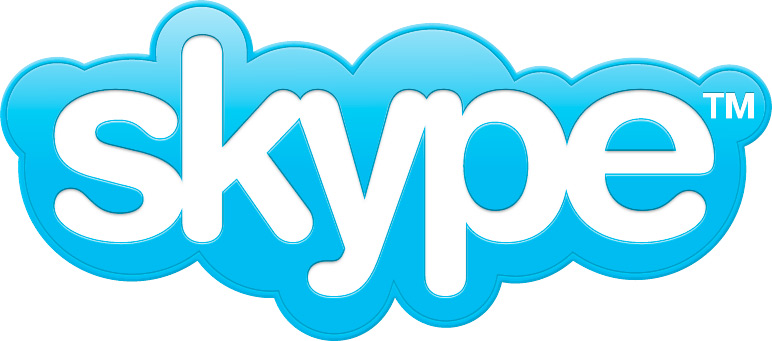
This is changing, because of new applications like WhatsApp and Viber, the Internet is now challenging established market players.
The voice companies, the 3 major telecom operators, are now starting to feel the competition on their bottom lines as Skype and Viber can effectively stem the revenues from voice by 50%.
“By the end of 2014 there will be no voice, so any company that has a 2G license will either have to upgrade to 3G or 4G or they will just die.” concludes Junad.
The new paradigm in Iraqi Kurdistan telecommunication sector is the fundamental shift from voice to the Internet.